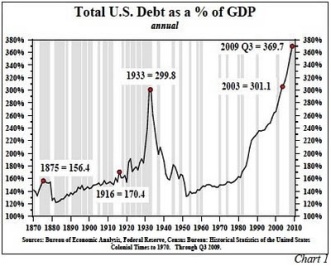Whoever Controls the Land will Control the Nations
May 15, 2012
Whoever Controls the Food will Control the People
By SUSANNE POSEL | OCCUPY CORPORATISM | MAY 15, 2012
Whoever controls the land controls the nation.
Corporations and foreign governments have been “ land-grabbing” from third world nations to control agriculture.
“What is missing the most in terms of land grabbing is a clear condemnation of this practice. That was one of the baseline demands of civil society,” Stephane Parmentier from aid agency Oxfam. “It was impossible to include it, because it was too sensitive and too controversial for quite a lot of member states.”
Nations like Ethiopia, South Sudan, Democratic Republic of Congo and Sierra Leone, in Africa have “voluntarily” signed agreements with multi-national corporations and foreign investors, allowing them to control agricultural land. The nation’s leaders believe that giving access to their resources will benefit their people; however this is just another manipulative ploy to coercively acquire control over land, food production and securitization.
The world’s governments have agreed to follow UN dictated guidelines over land, and who controls the fate of land.
The United Nations (UN) has enacted global guidelines on purchasing agricultural land from developing nations like Africa and Asia.
The UN claims that to secure equality for the poor and disadvantaged, this international body must control their lands through the allowance of mutli-national corporations and governments who will develop the land for agriculture and securitize the crop yields; thereby giving the UN control over the global food supply.
The document entitled “ The UN Global Compact and the OECD Guidelines for Multinational Enterprises” outlines through “voluntary” means, the UN will implement their international guidelines with respect to corporate conduct, standards and abilities.
The UN decries that their voluntary code of conduct promotes equal rights for women by securitizing title to land. They also claim that they will give poor people access to their own land once they own and control it. And once the UN controls the land, they will enact “legal help” to settle disputes.
This document requires governments and local communities to adhere to UN rules with respect to business practices.
The UN asserts that the Rio Declaration on Environment and Development; and the United Nations Convention against Corruption and subtle Agenda 21 initiates will allow their Global Compact principles to facilitate universal consensus.
To create this document and the guidelines within it, the UN collaborated with non-governmental groups, members of the global Elite within the private sector, and multi-national corporations.
“It’s a starting point that will help improve the often dire situation of the hungry and poor,” the head of the UN’s Food and Agriculture Organisation (FAO), Jose Graziano da Silva, said at a news conference in Rome.
Grazino da Silva said the guidelines should prompt revisions of national and international law.
Once agreements are signed, the land and the people are indebted to the UN for slave labor to work the land and watch their resources being reallocated to other countries for consumption. The promise of investment and technological advancement are just the hook to convince leaders to sign away the rights of their people and their land.
Over the last decade, the UN has “acquired” an area of land in Africa and Asia the size of Great Britain.
The World Bank, FAO and other UN agencies are meeting to create a new document to expand on the current guidelines. Certain acquisition of Africa through the guise of “investments” is a usurpation of land rights over a people who cannot say no or fight back.
Corporations like Cocoa-Cola have descended upon Africa by an $11 million dollar project funded by the Bill and Melinda Gates Foundation.
“Africa is now the last frontier in terms of arable land,” said James Nyoro, the Rockefeller Foundation’s managing director for Africa. “With the population growing to 9 billion, the rest of the world will have to depend upon Africa to feed it.”
Cocoa-Cola Corporation are employing 50,000 Kenyan and Ugandan small holders to produce fruit for Minute Maid, a subsidiary for Cocoa-Cola, to utilize their land in the hopes that crop yields will boost their profit margins.
“I have no doubt whatsoever that Africa can feed itself and that Africa can be a major contributor to world food security,” Namanga Ngongi, the former president of the Alliance for a Green Revolution in Africa (AGRA).
It is also no coincidence that researchers for the British Geological Survey (BGS) and the University of London have uncovered underground aquifers of water in Africa that are 100 times the amount found on the surface of the continent.
Andrew Mitchell, the United Kingdom’s Secretary of State for International Development is delighted by this find.
Considering the plethora of natural resources in Africa, it makes perfect sense why the UN and multi-national corporations are now usurping this continent for their own use.
The UN is currently allowing corporatism through aggressive international law to claim governance over crop production, privatization of water, disbursement of food stores and the eventuality of securing control over the world’s food supply.


